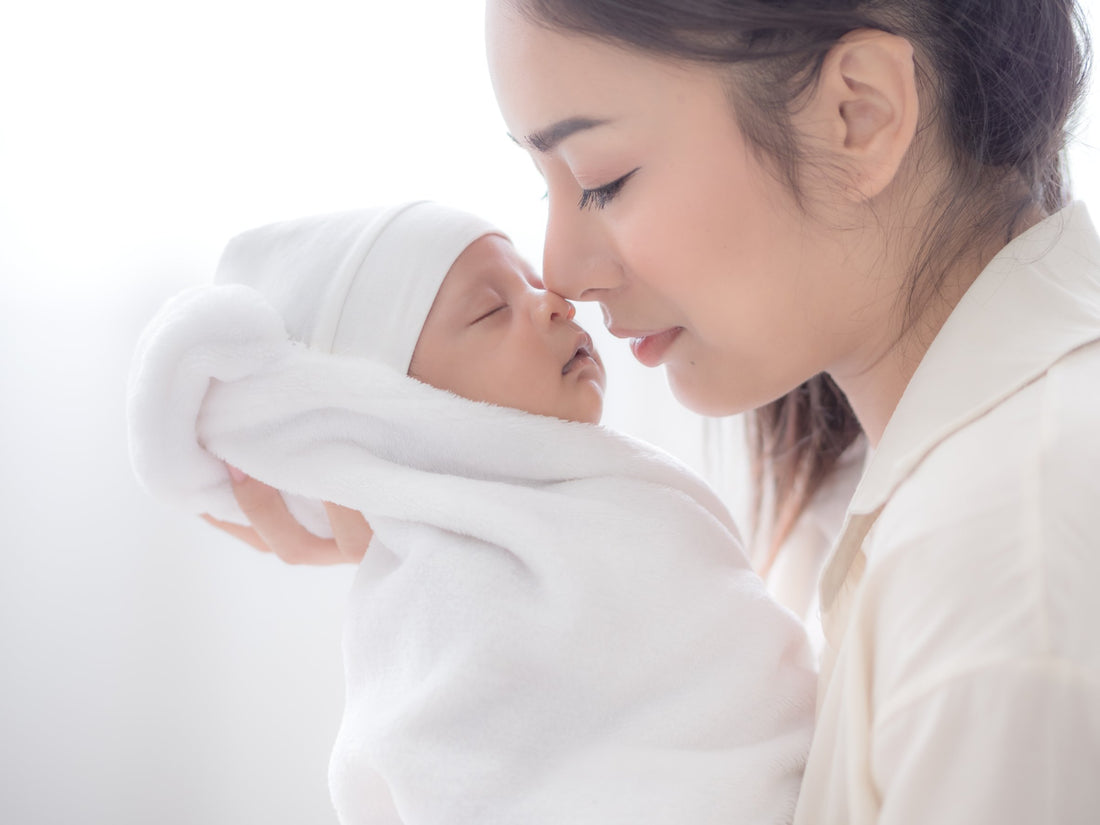Newborn Baby Milestones: Your Complete Guide to the First Month
| updated:Share

What milestones should you expect Baby to reach by the time he gets to his second month of life? Here is a complete guide to the newborn baby milestones your newest family member should reach in the first month so you know what to expect.
Month 1: Your Baby’s Health & Milestones
During the first month of your baby’s life, she may seem to change at a very slow pace. But watch carefully because she’s learning more than you may realize. By the end of that first month, she’ll be much more responsive and alert than she was when you first brought her home. She’ll also grow rapidly (about one inch in length and about two pounds in weight). Here are a few more things you should expect from your baby’s development in that important first month of life.

Newborn Senses
Babies are born with all five senses (hearing, smell, sight, touch, and taste). However, not all of these senses are fully developed at birth. Here are a few things you should know about what your baby is experiencing during the first month of his life as far as senses go.
Hearing is one of the fully-developed senses in newborns. Your baby should startle when exposed to sudden, loud sounds. Babies are also likely to settle down and pay attention when they hear their parent's voices.
Newborns have a strong sense of smell and seem to prefer the scent of their mothers. They especially like the smell of breastmilk.
Sight is one of the less-developed senses newborns have. They can detect the difference between light and dark but can’t yet see the full array of colors. Babies can see better at close range during the first month.
Newborns love the sense of touch. It comforts them and helps them feel more secure. Many newborns love to be swaddled.
Newborn babies show a strong taste preference for human milk compared to formula. They also prefer sweet tastes over bitter or sour tastes.
Newborn Reflexes
There are some reflexes your newborn baby should have. They include:
- The tonic reflex (when the baby gets into a position that’s called the “fencing” position in response to the way her head is turned)
- The Moro reflex (when Baby throws his head back and extends his arms in response to being startled)
- The grasp reflex (when Baby closes her fingers in a grasp in response to being stroked on the palm of her hand)
- The rooting reflex (when Baby opens his mouth and roots in the direction of his mouth being touched or stroked)
- The stepping reflex (when Baby appears to dance or take steps when her feet touch a solid surface and she is held upright)

Parenting Tips on Caring for Your 1-Month-Old
When your baby is one month old, he doesn’t know how to hold his head up yet, and his neck and head must be supported whenever he’s held. Here are some parenting tips on caring for your 1-month-old.
- Don’t stress if it’s hard to breastfeed at first. It can take time to help your baby latch successfully, and it may hurt temporarily.
- Don’t forget to have guests wash their hands before touching your little one.
- Try giving Baby a pacifier when she gets fussy.
- Remember that no two babies are alike. Even if you’ve had other children, your newest baby may be completely different than they were.
- Don’t bathe Baby too frequently. It could dry out his sensitive skin.
- Gently massaging your baby’s skin may help soothe her.
- Try administering gripe water when your baby is fussy or has an upset tummy.
- Expect your baby to sleep about 16 hours daily in the first month.
The newborn baby stage passes more quickly than you realize. Enjoy watching your baby reach various milestones throughout life.


